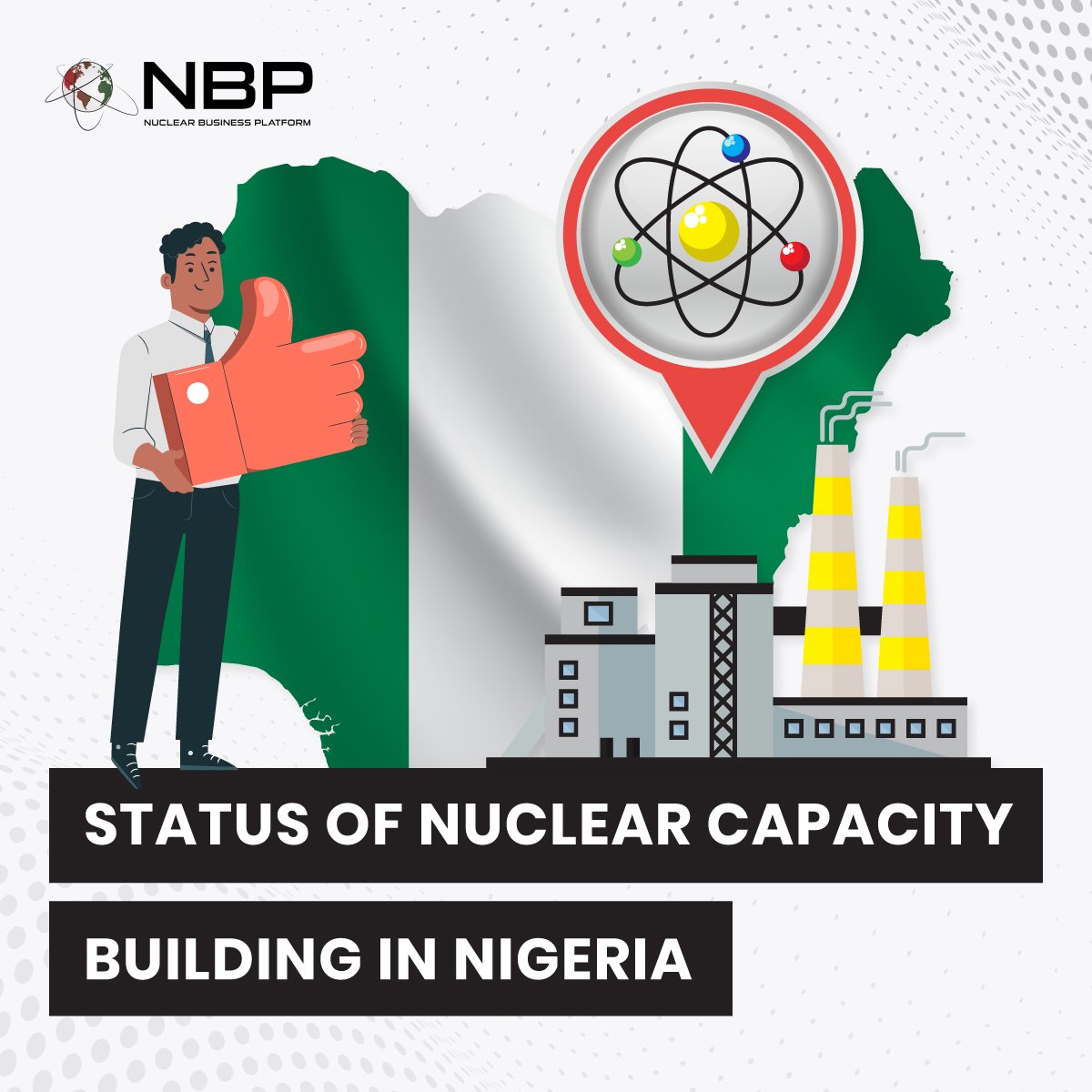Status of Nuclear Capacity Building in Nigeria
Human resource development stands as a crucial pillar within the nuclear industry, serving as the bedrock for safety and sustainability. As Nigeria sets its sights on integrating nuclear energy into its energy mix, the importance of robust human resource development cannot be overstated. According to the classification of Nuclear Business Platform (NBP), a leading nuclear energy consultancy firm based in Singapore, Nigeria stands prominently among the vanguard of African nations within the tier-1 category, actively exploring the inclusion of nuclear energy within their distinguished energy portfolios. Aligning with the National Energy Master Plan of Nigeria (NEMP), nuclear energy is poised to make its debut on the national electricity grid. Despite potential delays, this underscores Nigeria's resolute commitment to expanding nuclear energy within its energy framework. Consequently, Nigeria's delineated targets underscore the imperative of prioritizing human resource development as a pivotal element in realizing these ambitions.
Regarding human resource development, Nigeria actively collaborates with esteemed international organizations such as the International Atomic Energy Agency (IAEA). These partnerships offer invaluable opportunities for accessing specialized training modules and adopting best practices in nuclear safety and regulation, thereby enriching the local expertise pool. A pivotal aspect of Nigeria's endeavor is the participation of the Nigerian Nuclear Regulatory Authority (NNRA) in a European Union-sponsored project, bolstered by support from the Instrument for International Nuclear Safety Cooperation (INSC). This project specifically targets Human Resources Development within the nuclear domain. Its overarching goal is to fortify capacities in competence management, human resources practices, and knowledge management, thereby enhancing the nation's nuclear capabilities.
Moreover, the country adheres to recommendations from the IAEA by conducting competency analyses. These assessments are pivotal in pinpointing the requisite skills essential for effective regulatory responsibilities within the nuclear sector. Subsequently, strategic human resource and training plans are meticulously crafted and implemented based on the insights gleaned from these analyses, ensuring a robust and well-equipped workforce poised to navigate the complexities of nuclear safety and regulation in Nigeria.
Nigeria's Endeavor for a Multipurpose Nuclear Research Reactor
Nigeria boasts a 34kW research reactor housed at the Centre for Energy Research and Training (CERT), alongside a range of open radioactive sources dedicated to research endeavors. Additionally, significant investments have been made in three 14 MeV Neutron Generators, an 8 MeV van de Graff accelerator, and a tandem accelerator. However, Nigeria is actively seeking to acquire a multipurpose research reactor that can offer expanded capabilities. According to Dr. Asuku Abdulsamad from CERT, while the current nuclear research reactor has its merits, a multipurpose variant could significantly enhance the country's nuclear workforce development, education, and training initiatives. Furthermore, it could facilitate broader applications of nuclear and radiation technologies across various sectors such as healthcare, science, industry, and agriculture, thereby bolstering Nigeria's overall technological advancement and socioeconomic development.
Current Challenges and Business Prospects
In Nigeria, considerable efforts have been dedicated to enhancing human resources within the nuclear sector. Despite these strides, several needs and drawbacks persist.
One prominent challenge is the existence of a skill gap, particularly in specialized areas crucial for nuclear safety and regulation. Despite ongoing training programs and competency analyses, there remains a need for tailored initiatives to address specific skill deficiencies. Additionally, limitations in infrastructure, notably the capacity of the current research reactor and facilities, pose constraints on the expansion of nuclear research and development activities. This is compounded by resource constraints, with limited funding and resources hindering comprehensive training programs and infrastructure upgrades. Furthermore, navigating regulatory compliance with international standards remains a persistent challenge, requiring continuous adaptation and improvement of regulatory practices.
To mitigate these challenges, tailored training programs should be developed in collaboration with international partners, focusing on addressing identified skill gaps. Investments in infrastructure are essential, necessitating upgrades to existing facilities and acquisition of new infrastructure, such as a multipurpose research reactor, to expand research capabilities and training opportunities. Public-private partnerships (PPPs) can play a crucial role, leveraging the expertise and resources of global companies specializing in nuclear technology and training. Government support is paramount, requiring sufficient allocation of funds and resources to support ongoing human resource development initiatives and regulatory compliance efforts. Continuous evaluation mechanisms should be implemented to assess and improve training programs and regulatory practices in line with evolving industry standards.
The pivotal role played by the IAEA in facilitating the advancement of human resources in Nigeria is undeniable. Nevertheless, it becomes evident that the support of specialized organizations from nuclear mature countries is imperative for Africa's largest economy to further bolster its nuclear endeavors. These encompass tailored training services aligned with Nigeria's requirements, active participation in infrastructure development endeavors, provision of consultancy services focusing on regulatory compliance and safety assessment, facilitation of technology transfer agreements, and collaboration through joint ventures with local partners to establish dedicated nuclear education and research institutes. There exists a substantial demand for expertise in reactor design, construction, and operation, providing an opening for companies experienced in these domains to extend their services and aid Nigeria in procuring and operationalizing the reactor.
Through judicious collaboration, Nigeria possesses the opportunity to fortify its initiatives in nuclear human resource development ultimately contributing to the sustainable growth of its nuclear energy sector and broader socioeconomic development. As Dr. Asuku has said, “The nuclear energy industry is not only about the right infrastructure or political backings, the industry is also about knowledge and there lies a need for skilled human resource.”



